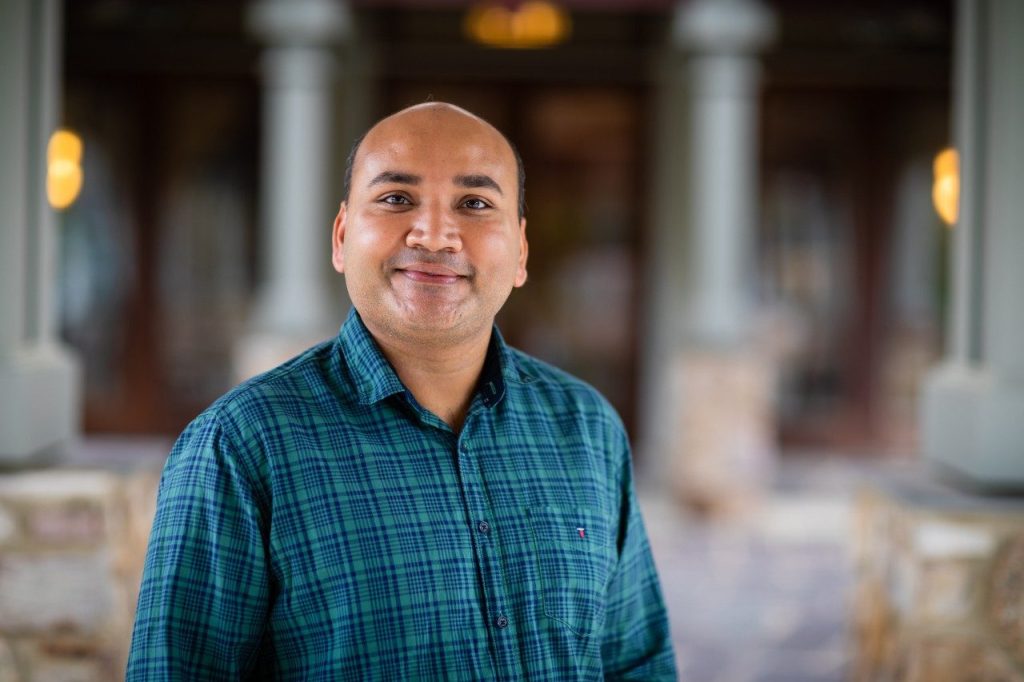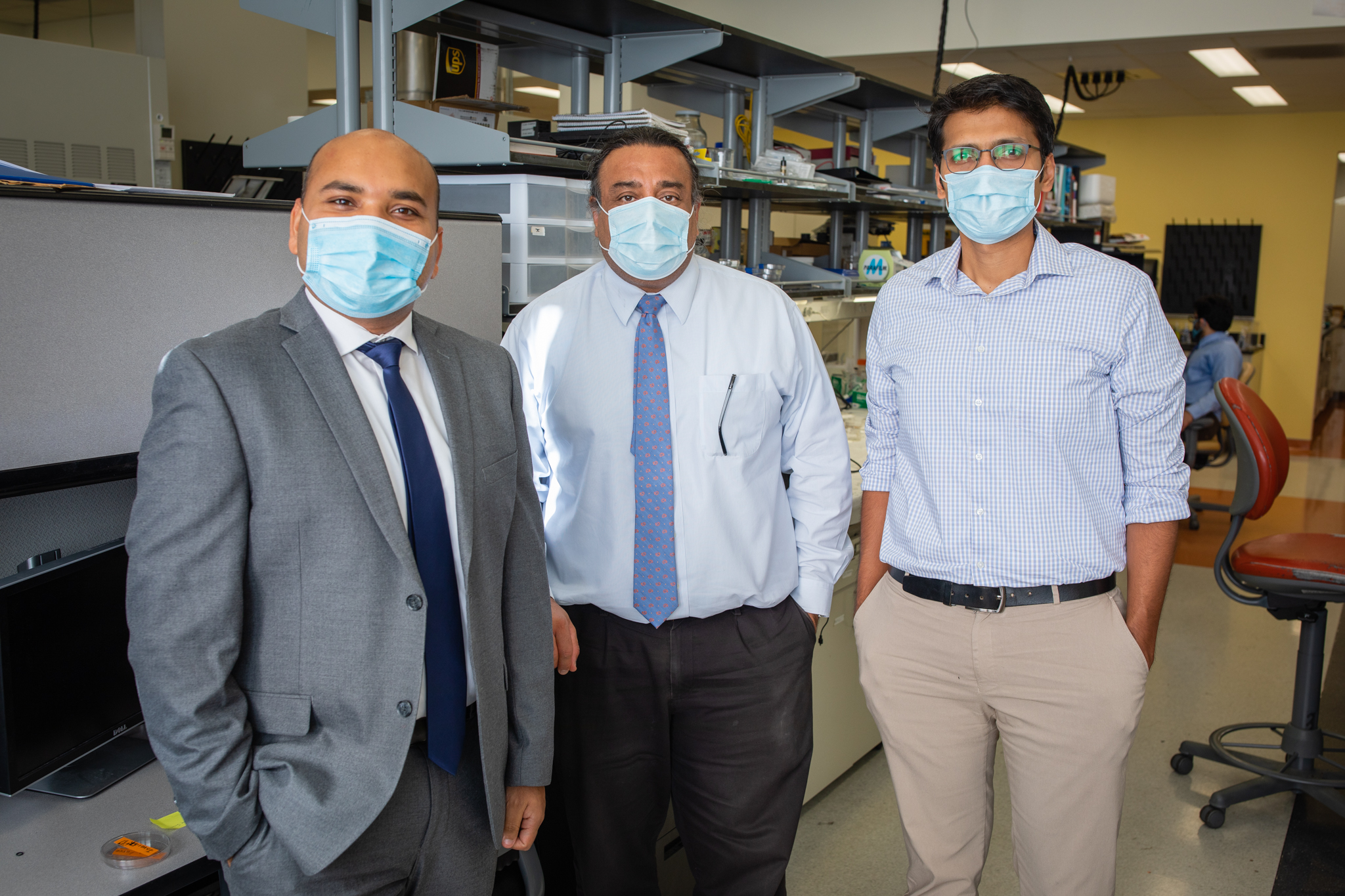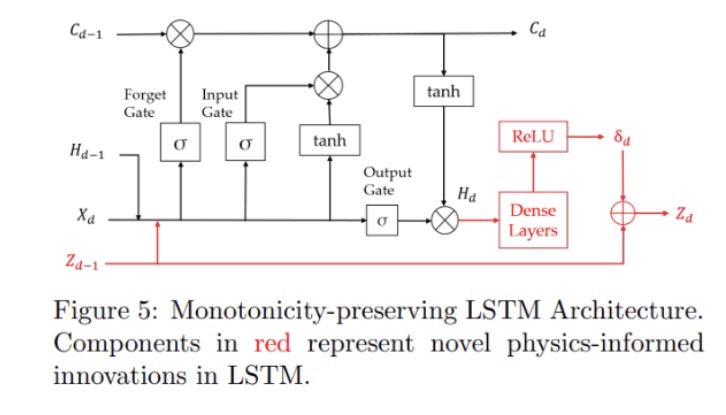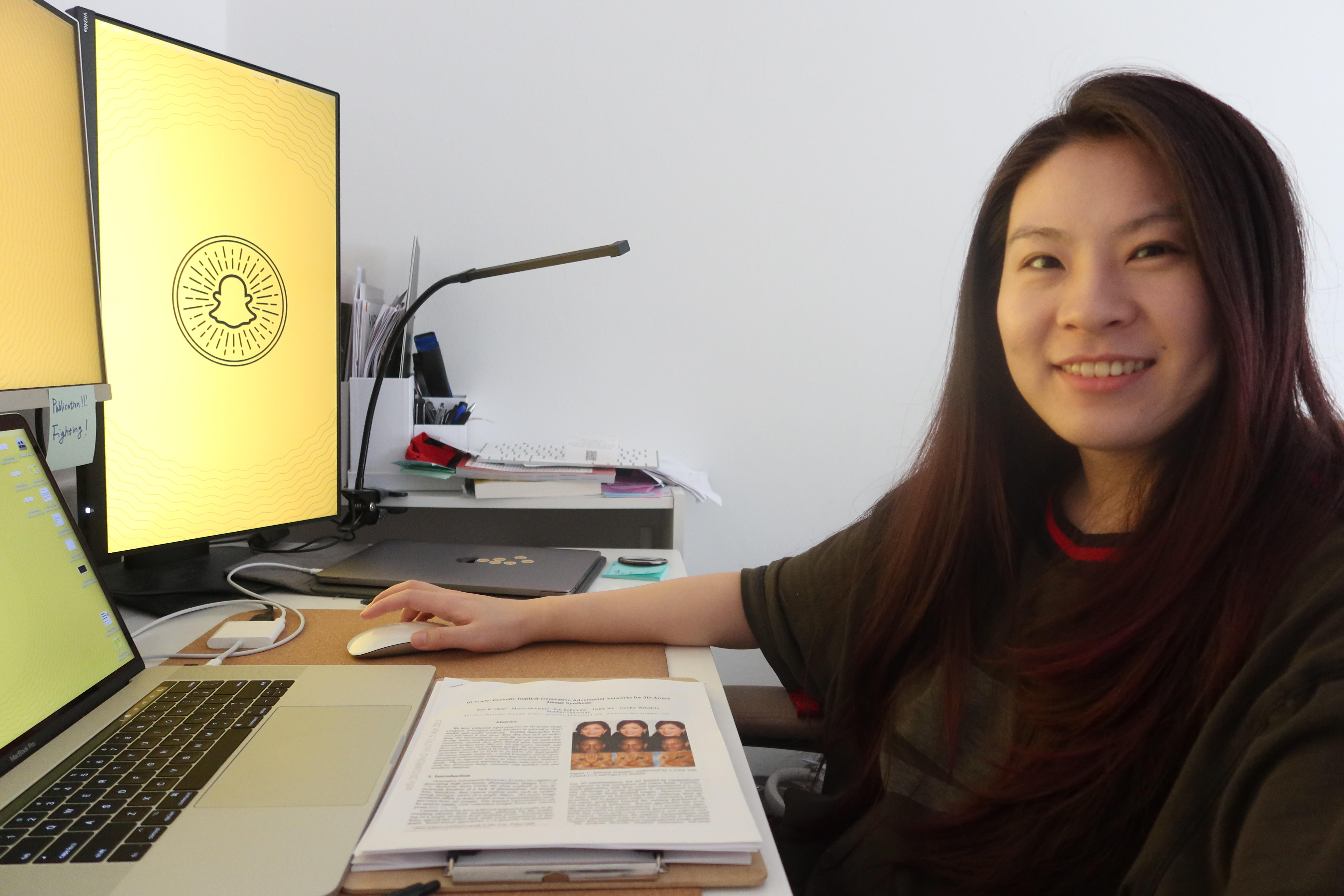Congratulations to Sanghani Center’s 2023 Summer and Fall Graduates

Virginia Tech’s 2023 Fall Commencement ceremonies take place today. The Graduate School Commencement Ceremony will be held in Cassell Coliseum at 1:30 p.m. and will be live-streamed.
“We celebrate our Summer and Fall graduates who have worked so hard to achieve their graduate degrees,” said Naren Ramakrishnan, the Thomas L. Phillips Professor of Engineering in the Department of Computer Science at Virginia Tech and director of the Sanghani Center for Artificial Intelligence and Data Analytics. They deserve all the congratulations coming their way and we wish them all the best as they embark on their new journeys.”
The following Sanghani Center students are among those who are receiving degrees:
Ph.D. Graduates
Aman Ahuja, advised by Edward Fox, has earned a Ph.D. in computer science. His research focused on document understanding, search and retrieval, and question-answering to improve the accessibility of long PDF documents, such as books and dissertations. His dissertation, “Analyzing and Navigating Electronic Theses and Dissertations” was awarded the 2023 Innovative Student Thesis Award by the Networked Digital Library of Theses and Dissertations (NDLTD). Ahuja has joined DocuSign in Seattle, Washington, as an applied scientist.
Arka Daw, advised by Anuj Karpatne, has earned a Ph.D. in computer science. His research centers around the emerging field of science-guided machine learning, where machine learning models are integrated with scientific knowledge (or physics) to ensure better interpretability and generalizability while enforcing scientific consistency. The title of his dissertation is “Physics-informed Machine Learning with Uncertainty Quantification.” Daw is joining Oak Ridge National Lab (ORNL) in Knoxville, Tennessee, as a Distinguished Staff Fellow.
Chris Grubb, advised by Leanna House, has earned a Ph.D. in statistics. His research focuses on developing a statistical learning method of population synthesis that allows for propagation of uncertainty from sample data into synthetic populations of agents. The title of his dissertation is “Inference for Populations: Uncertainty Propagation via Bayesian Population Synthesis.” Grubb has joined Virginia Tech’s Center for Biostatistics and Health Data Science in Roanoke, Virginia, as a research scientist.
Whitney Hayes, co-advised by Ashley Reichelmann and Naren Ramakrishnan, has earned a Ph.D. in sociology. Her research focus is on identity. The title of her dissertation is “Enhancing Identity Theory Measurement: A Case Study in Ways to Advance the Subfield.” Hayes also received a graduate certificate in urban computing offered through the Sanghani Center. She has joined Elevate, a climate action nonprofit based in Chicago, Illinois, and works remotely as a research analyst.
Brian Keith, advised by Chris North, has earned a Ph.D. in computer science. His research focuses on how to represent, extract, and visualize information narratives to aid analysts in their narrative sensemaking process. The title of his dissertation is “Narrative Maps: A Computational Model to Support Analysts in Narrative Sensemaking.” Keith has joined the Catholic University of the North in Chile as an assistant professor in the Department of Computing and Systems Engineering.
Shuo Lei, advised by Chang-Tien Lu, has earned a Ph.D. in computer science. Her research focuses on few-shot learning and domain adaptation. The title of her dissertation is “Learning with Limited Labeled Data: Techniques and Applications.” Lei has joined Sony Research in San Jose, California, as a research scientist.
Lei Zhang, advised by Chang-Tien Lu, has earned a Ph.D. in computer science. His research focuses on bi-level optimization, neural architecture search, and graph neural networks. The title of his dissertation is “Bilevel Optimization in the Deep Learning Era: Methods and Applications.”
Ming Zhu, co-advised by Daphne Yao and Ismini Lourentzou, has earned a Ph.D. in computer science. Her research focus is on Machine Learning and Natural Language Processing. The title of her dissertation is “Neural Sequence Modeling for Domain-Specific Language Processing: A Systematic Approach.” Zhu has joined ByteDance in Seattle, Washington, as a research scientist.
Master’s Degree Graduates
Nikhil Abhyankar, advised by Ruoxi Jia, has earned a master’s degree in electrical and computer engineering. His research focus is on machine learning privacy and security. The title of his master’s thesis is “Data Centric Defenses for Privacy Attacks.” Abhyankar has joined the Virginia Tech Department of Computer Science to pursue a Ph.D.
Humaid Desai, advised by Hoda Eldardiry, has earned a master’s degree in computer science. His research focuses on enhancing the efficiency and resource utilization of Federated Learning in resource-constrained and heterogeneous environments. The title of his master’s thesis is “REFT: Resource-Efficient Federated Training Framework for Heterogeneous and Resource-Constrained Environments.” Desai is joining Ellucian in Reston, Virginia, as a software engineer.
Chongyu He, advised by Edward Fox, has earned a master’s degree in computer science. His research primarily revolves around the application of advanced deep learning techniques for cell organelle segmentation in high-resolution microscopy images. The title of He’s master’s thesis is “Deep Learning Approach for Cell Nuclear Pore Detection and Quantification over High Resolution 3D Data.”
Junho Oh, advised by Lynn Abbott, has earned a master’s degree in Computer Engineering. His research focus is machine learning. The title of Oh’s master’s thesis is “Estimation of Global Illumination using Cycle-Consistent Adversarial Networks.”
Akash Sonth, advised by Abhijit Sarkar and Lynn Abbott, has earned a master’s degree in computer engineering. His research focus is on the application of machine learning in driver safety and intelligent transportation. The title of his master’s thesis is “Enhancing Road Safety through Machine Learning for Prediction of Unsafe Driving Behaviors.” Sonth has joined the Aspen Technology office located in Bedford, Massachusetts, as a data scientist.
Surendrabikram Thapa, co-advised by Anuj Karpatne and Abhijit Sarkar, has earned a master’s degree in computer science. His research focus is multimodal learning, computer vision, and natural language processing applications. The title of his master’s thesis is “Deidentification of Face Videos in Naturalistic Driving Scenarios.” Thapa also received a graduate certificate in data analytics offered by the Sanghani Center. He has joined the Virginia Tech Transportation Institute (VTTI) as a research faculty.



